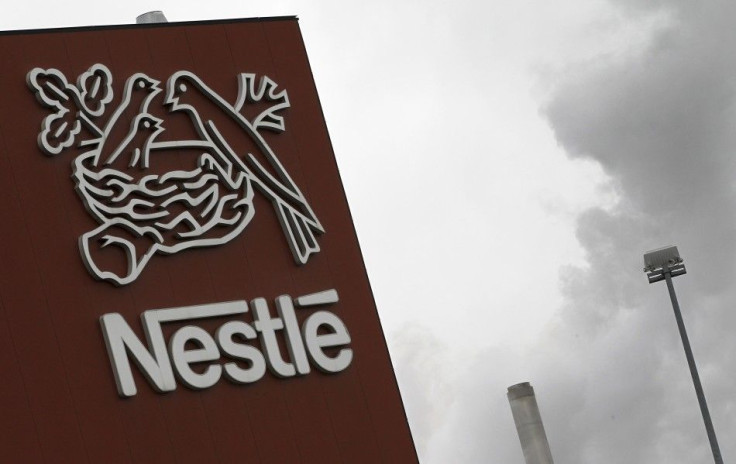Nestle May Sell Part Of Pfizer Nutrition After Purchase

Swiss food group Nestle SA may sell about 10 to 15 percent of the $11.9 billion baby food business it is buying from Pfizer Inc to address antitrust concerns, Bloomberg News reported Monday.
Nestle may have to offload divisions in countries including Australia, Thailand and Venezuela, Bloomberg said, citing people with knowledge of the matter.
Bloomberg reported that Nestle spokesman Robin Tickle said it was premature to comment on and prejudge the decisions of the regulatory authorities.
A spokesman for Nestle could not immediately be reached for comment by Reuters.
Consumer product companies and private equity funds may be interested in the assets, the report said.
Nestle SA, the world's largest food group, said Monday that it has agreed to acquire children's food maker Pfizer Nutrition for $11.85 billion.
Infant nutrition has been at the heart of our company since it was founded in 1866. Pfizer Nutrition is an excellent strategic fit and this acquisition underlines our commitment to be the world's leading nutrition, health and wellness company, Nestle said in a statement.
Drugmaker Pfizer Inc.'s infant nutrition business, currently witnessing a growth in sales at 8 percent a year, generates about 85 percent of its sales from emerging markets. Pfizer Nutrition, which recorded revenue of approximately $2.1 billion in 2011, has a strong portfolio of brands encompassing everyday and specialty infant and toddler formulas.
Pfizer Nutrition is an excellent strategic fit and this acquisition underlines our commitment to be the world's leading nutrition, health and wellness company, Nestle Chief Executive Paul Bulcke said on the acquisition.
France's Danone SA also made a joint bid with Mead Johnson Nutrition Co. for Pfizer Nutrition. Pfizer hired JPMorgan Chase & Co., Bank of America Corp. and Morgan Stanley to aid in the transaction.
The transaction is a testament to the success of the Nutrition business, including its excellent reputation, talented colleagues, high-quality products and market reach, Amy Schulman, Executive Vice President, Pfizer General Counsel, said.
It was in July 2011 that Pfizer announced that it may sell or spin off its nutrition unit, sparking Nestle's and Danone's interest, which made a joint bid with Mead Johnson Nutrition Co.
One specific point of interest for Nestle in this acquisition is to regain market share in China, which feeds 16 million new babies a year, and where Pfizer has a 7 percent share.
Nestle, the biggest seller of infant-nutrition products, has continuously lost market share in China ever since two of its milk powder varieties were withdrawn in 2005 after authorities detected too much iodine in them.
China's baby food market has grown more than 20 percent in the last five years to cross $6 billion and, according to research estimates, it is expected to double by 2016.
In 2011, Nestle had gone ahead with its expansion plan in China with the purchase of 60 percent stake in Hsu Fu Chi International Ltd, which is the country's biggest confectioner by market value. Nestle will attain the third position in China's market behind Mead Johnson and Danone following this deal with Pfizer.
© Copyright IBTimes 2024. All rights reserved.





















